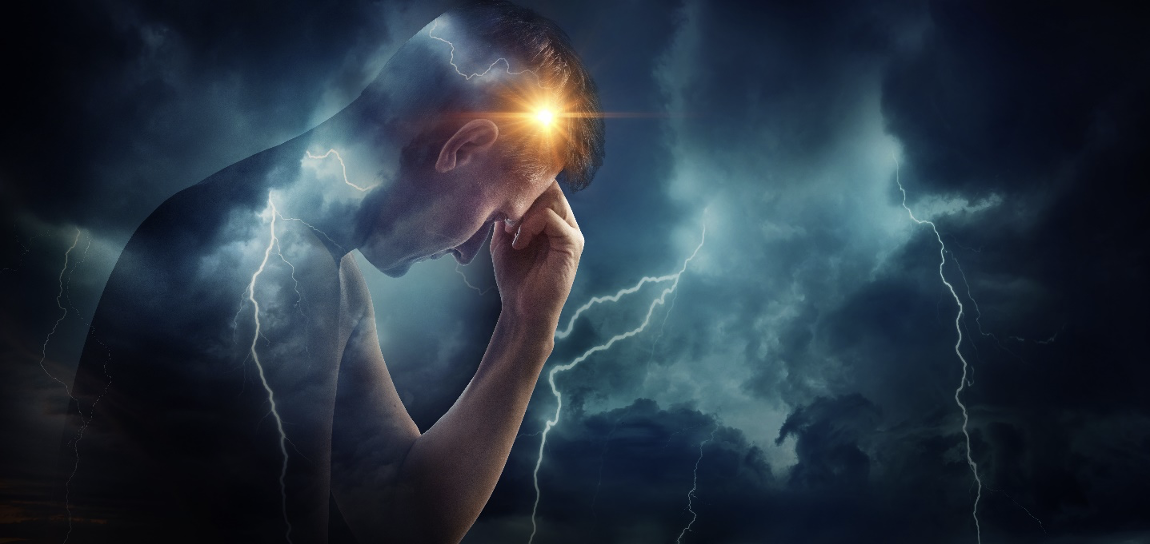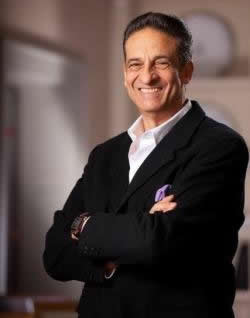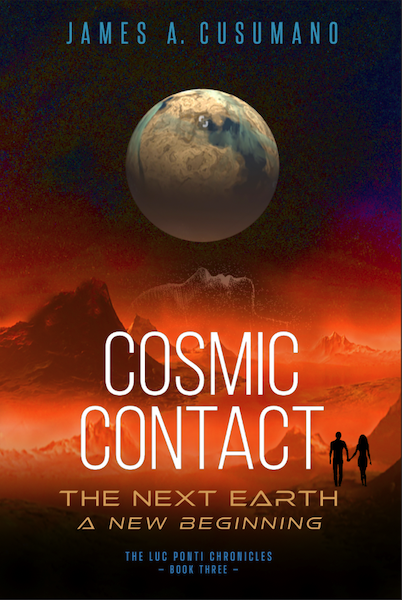Ultimate Power Lies Within You Not Without

Ultimate Power Lies Within You
Not Without[1]
The absolute power of human beings lies within them, not “out there.” Equally fundamental, this power is accessible only if you understand and accept the nature of your True Reality and are willing to apply the effort necessary to achieve a life of greater joy and fulfillment. To understand these assertions, it’s helpful to compare certain underlying elements of consciousness, philosophy, and religion.
Philosophy and religion have long been the subjects of profound exploration, each offering distinct approaches to understanding the world, the universe, and our place within them. Philosophy seeks to uncover the nature of knowledge, reality, and existence through reasoned inquiry. Religion, on the other hand, is rooted in faith, reverence for higher powers, and adherence to beliefs concerning the Divine and its role in the cosmos. In comparing these two domains, we encounter important concepts of consciousness, which serve as a bridge between them.
Consciousness
Consciousness, for sentient beings, is the capacity for self-awareness and understanding the internal self, the external world, and our place within the universe. It is a non-physical energy distinct from the classical electromagnetic energy spectrum. In the electromagnetic energy spectrum, gravitational waves occupy the low end, while gamma rays are at the high end. The energies of consciousness waves are also spread over a broad spectrum, albeit a very different one. Thought waves exists at the low-energy end. Speculation abounds concerning what lies at the high end, with some investigators suggesting it may be linked to cosmic dark energy.[2]
Philosophy
Philosophy employs rational analysis and informed conjectures to explore both the physical and spiritual[3] realms of existence. It aims to guide not just individual human development but also provide a deeper understanding of the universe’s interconnectedness through Personal Consciousness. Personal Consciousness is the True Reality of all matter and energy throughout the universe. Unlike body and mind, which have a finite existence, it is infinite and eternal.
A conjecture in philosophy, while not proven, is often based on informed insight and functions as a bridge toward greater understanding. This method of analysis parallels how conjectures in mathematics and physics eventually evolve into established truths through further investigation.
A prime example is Fermat’s famous mathematical conjecture from 1637, which challenged scholars for centuries until Oxford mathematician, Sir Andrew Wiles proved it in 1993.[4] This transformation from a conjecture to a theorem mirrors philosophy’s role in exploring uncharted intellectual territory, even if the full truth remains elusive.
Religion
Religious traditions, by contrast, tend to be more rigid, governed by systems of dogma and doctrine often focused on dualistic concepts like good and evil, heaven and hell. Many of these systems, constructed centuries after the spiritual figures they are based on, were shaped not by the luminaries themselves, but by individuals seeking wealth, power, and influence. Critics argue that figures like Laozi, Buddha, Jesus, and Mohammed likely never intended to establish organized religions; instead, they offered philosophies meant to enrich human consciousness and improve lives through a deeper, more meaningful engagement with the self and the universe.
The organized structures of religion often prioritize obedience to doctrine, with concepts such as sin, salvation, and divine punishment driving behavior. While religion has historically offered solace to many, it has also been implicated in significant human conflict, such as The Holy Crusades, The Thirty Years’ War, and The Inquisition, highlighting the complex and challenging consequences of this dualistic thinking.
Consciousness Conjectures
The 15 Consciousness Conjectures[5] bridge the gaps between science, spirituality, and philosophy, and present an alternative to organized religion, forming the basis of a "Universal Philosophy." This philosophy emphasizes internal exploration of consciousness rather than reliance on external deities or rigid doctrines. It posits that the Divine is not an external force but resides within each of us, accessible through consciousness-elevating practices such as meditation. This approach encourages individuals to explore their own consciousness to find deeper meaning and fulfillment.
Despite the contrast between philosophy and religion, it’s important to recognize that throughout the ages, amid worldly chaos, turmoil, and adversity, religion has undeniably provided a level of solace, optimism, and hope to many of its adherents. Therefore, it’s useful to consider the source of these benefits—The Power of Myth.
Religion and The Power of Myth
The benefits of organized religion to the individual, even when one considers many of its dogmas and tenets to be a blend of a modified, self-serving interpretation of history and mythology, are best understood by what Joseph Campbell called The Power of Myth.
Cambell’s concept of The Power of Myth refers to the important transformative impact that myths can have on human consciousness and society. A renowned mythologist and scholar, Campbell explored the role of myths across different cultures and historical periods. He argued that myths serve several critical functions to humanity:
- An Explanation of the Universe: They provide a framework for understanding the natural world and the cosmos, offering possible explanations for the mysteries of existence, creation, and the forces of nature.
- Guidance for Personal Growth: They often contain archetypal stories and characters that represent universal human experiences and challenges. These stories can guide individuals through life’s stages, offering insights into personal development, transformation, and self-discovery.
- Cultural Cohesion and Identity: Myths can reinforce cultural values, beliefs, and traditions, helping to unify communities by providing shared narratives and symbols that foster a sense of belonging and identity. These principles tend to provide long-term stability to social structures.
- Moral and Ethical Lessons: Drawing on existing social and cultural mores, myths often encapsulate moral and ethical principles, conveying lessons about right and wrong, virtue and vice, and the consequences of human actions.
- Spiritual Experience: They can serve as conduits for spiritual experiences and a sense of connection to the Divine or the Transcendent. They can evoke a sense of wonder, awe, and reverence with respect to the mysteries of existence.
In his works such as The Hero with a Thousand Faces[6] and The Power of Myth (a series of interviews with Bill Moyers),[7] Campbell explored these concepts, illustrating how mythological themes recur across cultures and epochs, resonating with the human psyche. He emphasized the idea of the “monomyth” or “hero’s journey,” a common narrative structure found in many myths worldwide, which follows a hero’s adventure, crisis, downfall, and recovery, symbolizing personal and collective transformation.
Campbell believed that modern society often loses touch with The Power of Myth, leading to a sense of disconnection, discouragement, and meaninglessness. By reconnecting with these ancient stories and their symbolic meanings, he maintained that individuals could find greater depth, purpose, and understanding in their lives.
In one way of thinking, these myths serve to inspire various levels of consciousness with a function that threads its way throughout Universal Consciousness, and hence can make a broad positive impact. Therefore, the value of myth within organized religion must be acknowledged, and even embraced.
Nevertheless, it’s important to recognize the other side of the “mythological coin”—a clear and nonnegotiable commitment by religion to duality—“I am here and the Divine is up there.” “I am here, and you are there.” “This is me or mine, and that is you or yours.” This aspect of duality dismisses the critical value of the interconnectivity throughout the consciousness spectrum within the universe, and most important—the presence within all living and nonliving species of Cosmic Consciousness,[8] the Divine, or God, whichever descriptor you choose, not some disconnected power solely “up or out there.”
Therefore, the Power of Myth should be pursued with clarity, care, and most important, balance, since throughout all of history, duality has been the prime force behind much of the turbulence, misgivings, and conflicts throughout the world.
Religion, Myth, and the Power of Duality
While myths can inspire and uplift, religion’s strong association with duality—separating the Divine from the individual and viewing life as a series of opposites—has also fostered division and conflict. This dualistic worldview has contributed to turbulence seen throughout history and the eventual decline of great civilizations such as Mesopotamia, Samaria, Persia, Egypt, Greece, and Rome. If humanity continues to cling to dualistic thinking, it risks repeating these patterns of decline.
Nonduality: The Core of the Consciousness Conjectures
In contrast, the Consciousness Conjectures embrace nonduality, the belief that the Divine essence exists within all things, both living and nonliving. This perspective emphasizes the nonlocal interconnectedness of consciousness throughout the universe, accessible through consciousness-elevating practices like meditation. By quieting the chaos of the external world, individuals can tap into this deeper Cosmic Consciousness, the Source of infinite knowledge, wisdom, creativity, love, and compassion.
Meditation offers a way to connect with this deeper reality, much like prayer. Many spiritual figures, revered for their extraordinary abilities, likely harnessed the power of meditation to reach the higher states of consciousness necessary to manifest these abilities.
Navigating the Cosmic Mysteries
In today’s rapidly changing world, as we face new questions about AI, the nature of consciousness, and our place in the cosmos, the Consciousness Conjectures offer a path for introspective reflection and personal exploration. They encourage individuals to go beyond the boundaries of religion, science, and philosophy, to explore consciousness itself as the foundation for a more fulfilling existence.
A crucial idea to take away from our discussion is the recognition of humanity’s ingrained tendency toward dualistic thinking and the urgent need to shift to a non-dualistic perspective. Society programs us from birth that fulfillment comes from external sources, but this is a profound misconception. The wisdom and power of Cosmic Consciousness lie within all of us, and by silencing the noise of the external world, we can unlock it.
When Christ, one of the great Avatars[9] of human history, was asked about his ability to perform miracles, He responded, “All that I do, you can do, and more.”[10] Nonduality—the idea that the divine resides within—is the key to true joy and enlightenment. Through contemplation, mindfulness, and meditation, each of us can access this inner reality, leading to a life of greater meaning and fulfillment.
![]()
Endnotes
[1] This is a summary of one of the chapters in a forthcoming book by James A. Cusumano, Dance to the Rhythm of the Cosmos: Tapping into the Infinite Power of Consciousness—Merging Fiction and Nonfiction, Conjecture One, “The Consciousness Conjectures,” to be published in December 2024 by Waterside Productions, Cardiff-by-the-Sea, CA 92007.
[2] Discussed in detail in the reference noted in endnote1.
[3] “Spiritual” in this context refers to an entity’s nonphysical true reality, here defined as Personal Consciousness. It is not part of a specific theology.
[4] This enigmatic and challenging conjecture, asserted without mathematical proof that no set of positive integers for a, b, and c could satisfy the equation an + bn = cn for any integer value of n greater than 2.
[5] These conjectures are developed and discussed in the reference stated in endnote 1.
[6] Joseph Campbell, The Hero with a Thousand Faces (The Collected Works of Joseph Campbell), New World Library, 3rd Edition, Novato, California, July 28, 2008.
[7] Joseph Campbell, The Power of Myth, Doubleday, New York, 1988.
[8] Sometimes referred to as the Akashic Field, the Unified Field, or God.
[9] Avatar: A manifestation of a deity in human form; an incarnate Divine teacher.
[10] English Standard Version of the Bible, John 14:12.

